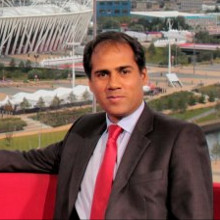Actually, the ride started last week when the FTSE 100 climbed to lofty heights, tantalizing investors with the possibility that the index would establish a new high. Then, just as it seemed possible, the FTSE plunged to it’s current level of 6578. It looks like we’ll have to start the ride over in order to reach what we had hoped for.

But it’s not just the FTSE, it’s the entire financial world. The S&P Index closed its worst week since 2012 on Friday, 24 January. This morning, that index is on the rise again, but, given the economic changes indicating less than favorable expectations for many companies in emerging markets, an early morning pulse from the S&P hardly indicates a trend. In my personal opinion, I think that we have reached a point where any sign of life spawns an spirit of exuberance and any sign of decline triggers despair. What I am saying is that the investments are presently being driven more by emotion than by reason.
Adding to the current and potential market volatility, tomorrow evening, Tuesday 28 January, U.S. President Barack Obama will deliver his annual State of the Union address. Although most U.S. citizens will switch channels because they are tired of his prevarications, political analysts and commentators will be counting them. It would be unfortunate if investment analysts bought into anything that he says. They would do themselves and the rest of us a big favor, if they analyze company reports and forget whatever it is that Mr. Obama sugar-coats or distorts.
Another problem that is right in front of our faces, but is one that I don’t think that we have fully grasped yet, is the decline in expectations for emerging markets. It is a very real concern, but, from the reports I have read, it is a concern that companies understand and are addressing rationally. The issue is not that emerging market potential is slowing. The issue is “Do the companies where I have invested have an adequate plan and are they resilient enough to respond in a timely and appropriate manner so that they can maintain a pattern of growth. Whilst I agree that political instability in many emerging countries and the financial crisis in Argentina can have some adverse effects on companies invested there, we need to keep in mind that those companies have already calculated that cost and, therefore, should be able to withstand at least some, if not all, of any adverse impact.
Which leads me to another related matter contributing to the market’s volatility – profit warnings. By the end of 2013, 255 profit warnings had been issued during the year on the London Exchange main markets and AIM. This number was down slightly from 287 in 2012. Perhaps the item of the single greatest concern might be that 73 profit warnings came in the Sept-Oct-Nov period. It’s not the number that is so important as it is that it was a 30% increase over year-on-year. Nonetheless, I recommend a change in thinking regarding profit warnings. They are not omens of impending disaster. They are an excellent business practice. The warnings are meant to avoid nasty surprises. But we have allowed the warnings to evolve into the nasty surprises. Frankly, I believe that most business forecasts are based on reasonable expectations. It would be foolish for boards to publish forecasts that they do not believe that they are capable of exceeding. If you are really investing for the long haul, you should be able to see that these are temporal things and that they are no different than forecasting the weather, which, even with all of the technical advances of the past several decades, is not always accurate.
Here’s my point.
- Take profit warnings for what they are.
- Don’t worry too much about emerging markets. They may need time to breathe. It’s not over. It’s just a slow down. And that includes China.
- Don’t overreact just because others do. The broader the scale of overreaction becomes, the more it resembles panic.
And finally, do not believe a thing that Mr. Obama says on Tuesday evening. Really, with the way he has been destroying the U.S. economy, would you trust him to be your financial adviser? So, let’s stay calm and see how the week goes. Better hold on, just in case.

 Hot Features
Hot Features













